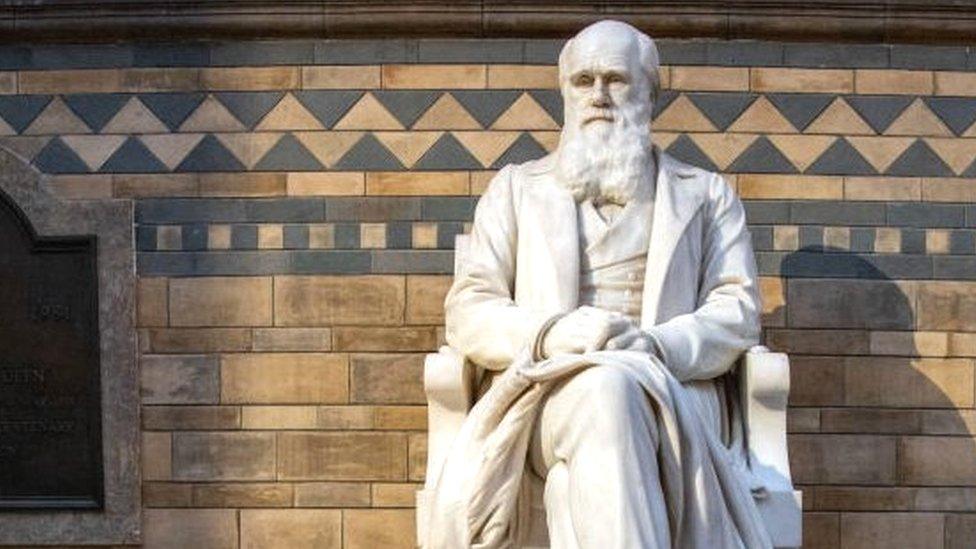Coral reef off Galapagos Islands discovered by scientists
- Published
- comments
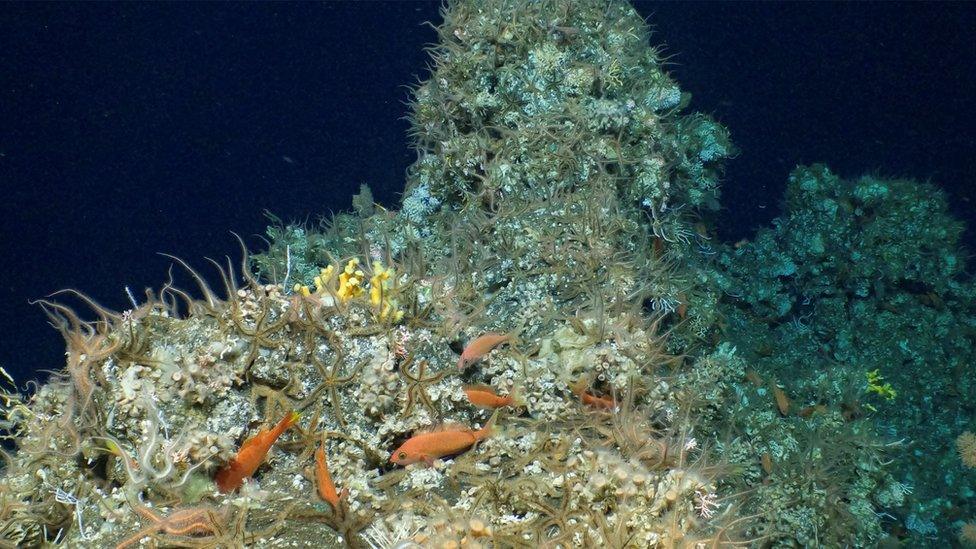
Here you can see a school of fish gathering at the newly discovered reef
A previously unknown coral reef has been discovered by scientists off the coast of Ecuador's Galapagos Islands.
The country's Environment Minister Jose Davalos said on Twitter: "A deepwater scientific expedition has found the first totally pristine coral reef, approximately two kilometres long, at 400 metres (deep), on the summit of a submarine mountain... Galapagos surprises us again!"
The scientists say it's exciting news, as many coral reefs around the world are suffering as a result of climate change and coral bleaching.
Michelle Taylor, co-leader of the Galápagos Deep Expedition 2023, says the newly-discovered reef is "teeming with life".
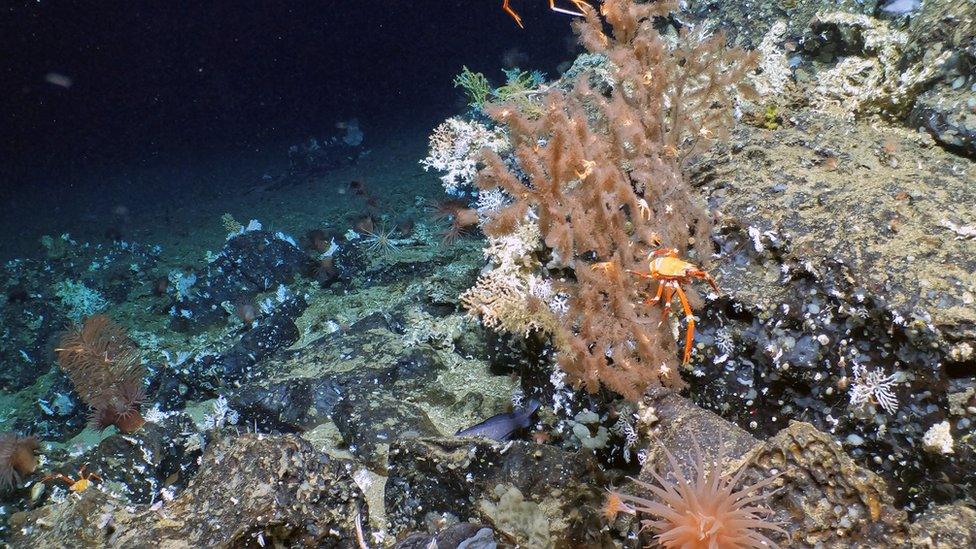
Can you spot the crab?
Lots of reefs around the Galapagos islands were damaged in the 1980s during an extreme weather event called El Niño.
It was thought that only Wellington reef - which is found off the coast of Darwin Island - survived untouched.
However, this coral ecosystem has been declared "pristine" by the country's Environment Ministry, as it too survived the harsh weather conditions 40 years ago.
The ancient reef is thousands of years old according to the scientists that found it, and they say the discovery is a huge win for marine life all over the world.
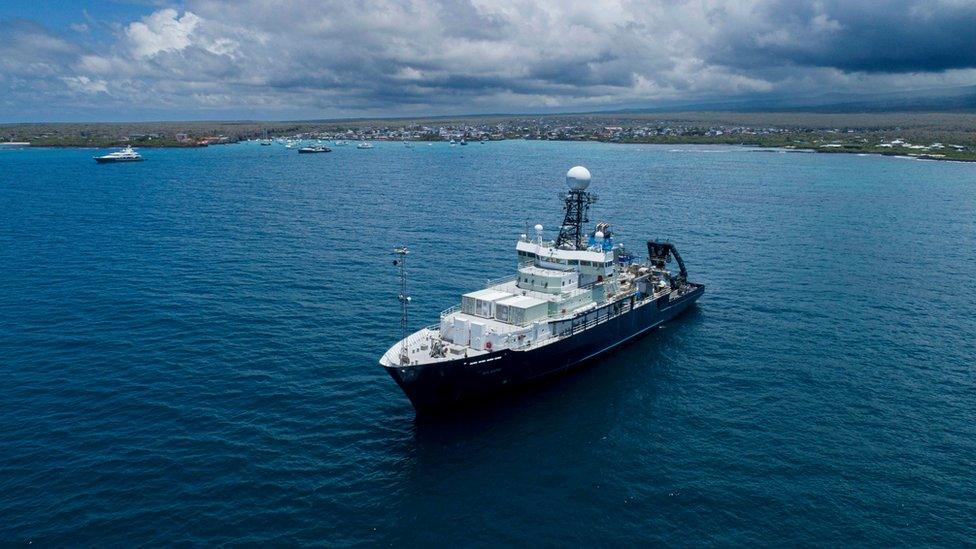
The scientists made the discovery aboard this ship, the Atlantis
This is very important at a global level because many deepwater systems are degraded
The Galapagos Islands were the place where famous scientist Charles Darwin came up with his theory of evolution
Evolution is the way things change over time - to learn more, check out this guide from BBC Bitesize
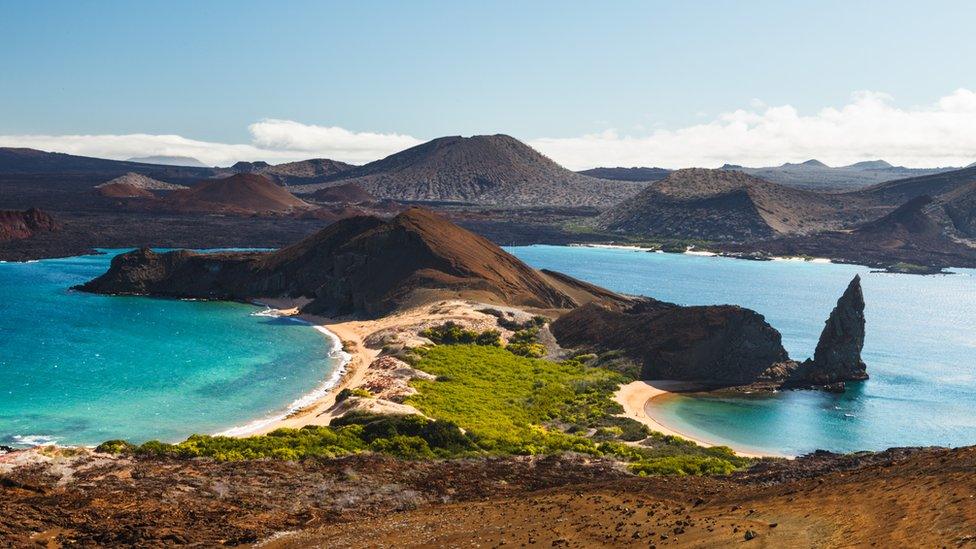
The Galapagos Islands are home to many rare animals, such as giant tortoises, albatrosses, and cormorants.
Why are coral reefs important?
These underwater ecosystems are important in a number of different ways.
They provide an essential home for thousands of species of marine life.
For example, the Great Barrier Reef off the coast of Australia contains over 1,500 species of fish, 4,000 mollusc species and six of the world's seven sea turtle species.
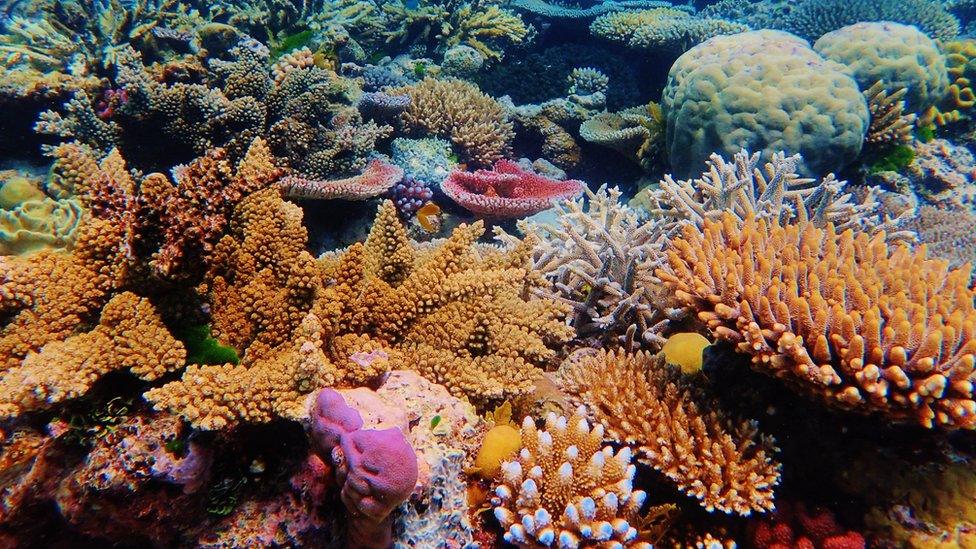
This is a section of the Great Barrier Reef near Australia
They're also really important for making medicine.
Treatments for asthma, arthritis, cancer and heart disease have all been made using extracts from animals and plants on reefs around the world.
And they help protect our shorelines - coral reefs can absorb up to 97% of a wave's energy, meaning they provide a very effective barrier against disasters such as tsunamis.
- Published15 March 2022
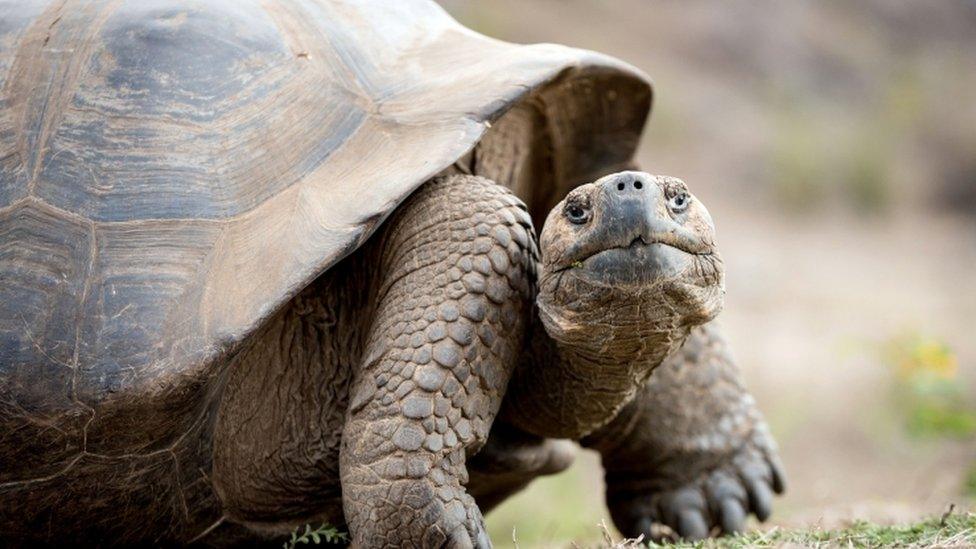
- Published30 November 2022
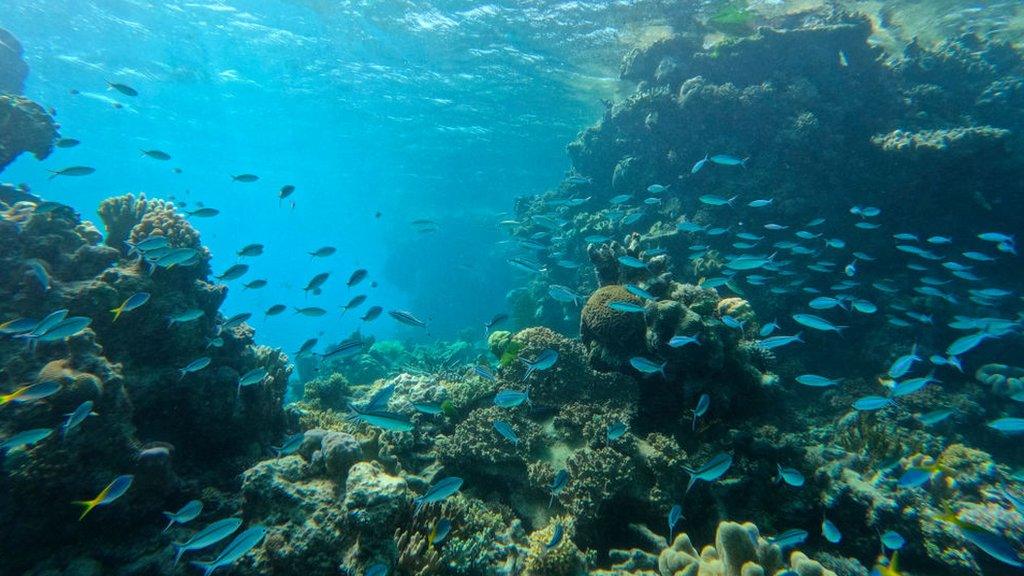
- Published11 February 2022
